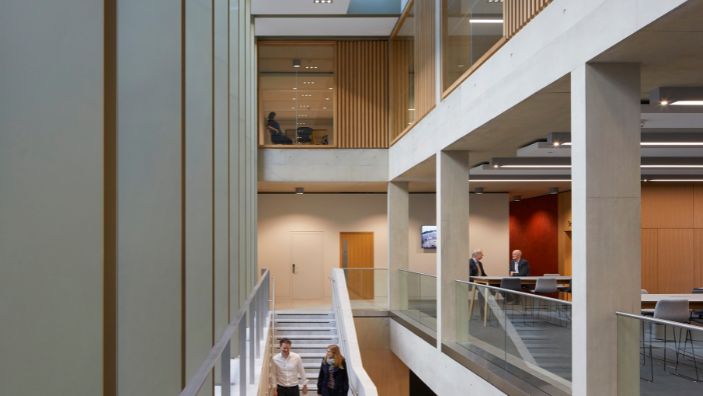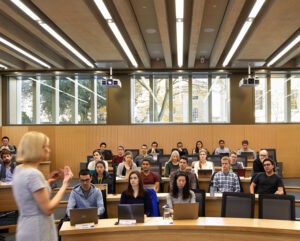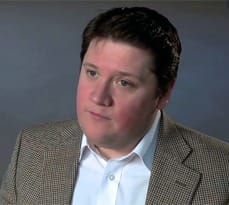Centre for International Human Resource Management
Including the International Global Corporate Governance Initiative
The CIHRM is a multidisciplinary and collaborative research forum aiming to improve how people can be their best selves at work.
We are interested in the factors that allow individuals and teams to perform truly effectively.
This embraces a strong focus on the way organisations as a whole are run – the theme of governance. The link between how people behave and perform at work and how their organisation is governed is profound. How the board and the executive team set the conditions for how people are selected, motivated, rewarded and promoted are major choices in how effectively an organisation is run
The CIHRM and the International Governance Initiative, also provide a knowledge and education hub for people operating in academic, practitioner and policy spheres.
Thought leadership through advanced research; improving organisational, team and individual performance and providing bespoke consultation and high-level executive education programmes-alongside youth education pathway that introduce governance at all levels and cultivate future-ready leaders.
Who we are
Our diverse team of highly knowledgeable and experienced academics, practitioners and policy makers work in a wide variety of organisational contexts.
We bring together ideas and insight from the fields of people management and governance to embrace the complex, multilevel nature of organisational performance.

What we do
We provide 3 offerings:
- A forum for research on people and governance
- Advisory work on employee and team performance and on the dynamics of the board
- Educational programmes focusing on improving performance at individual, team, ad organisational levels.
Research
We provide a forum for research that aims to combine both rigour and relevance in the fields of people management and governance. We focus on how we can make improvements in how people work and experience that work and in how the system within which people operate.
Ideas and insights
Our people publish books, reports, articles and papers regularly. Find out more about our publications.
Standout projects
We’re taking part in a £5 million research collaboration set to radically change the UK’s internet infrastructure to meet the needs of a revolution in technology in society.
Watch this NG-CDI presentation on ‘Governance and Risk Management’ by faculty member, Dr Philip Stiles, exploring how autonomics at scale is used to improve how we manage business risks. He also looks at how to avoid the pitfalls of emergent systems, at both technical and organisational levels.
A case study of automation in financial services in the investment banking sector – exploring risk and government issues in algorithmic trading.
A case study of digital transformation in a civil engineering firm.
We look at how the successful operation of an increasingly autonomous infrastructure must connect with the principal business functions of the company. Watch our video exploring our learnings from industry sectors treading these paths, such as financial algorithmic trading and retail logistics.
We examine how organisations prepare for the critical task of selecting and appointing members to sit on the board of directors. This a major element of organisational renewal and it is often a difficult and contested process. Our colleague Jens Jenssen has completed a study in collaboration with Egon Zehnder.
Though seemingly trivial, office politics can affect the performance of employees and organisations. In this podcast from the Cambridge Judge Business Debate series we ask how we can improve them.
Our impact
We seek to make impact to help individuals, teams and organisations to improve performance. We do this by developing and sharing research and thought leadership to co-create insights and events to shift mindsets and structures and cultures.
People are enmeshed within governance structures which both enable and constrain behaviours and attitudes and assumptions. People are constituted by the governance structure and governance structures are shaped by people. The iterative nature of this relationship makes it necessary to address both sides to achieve real performance and effectiveness.
Our goals for impact is to make tangible improvements in how people performance and to enhance the governance arrangements that allow people and originations to flourish. We do this through research, direct engagement with individuals, teams and organisations in both disseminating the research, conducting advisory work and through educational programs.
Our impact continues to extend across our Centre’s participants, from leading sovereign wealth funds and major industry players in technology, real estate, consumer sectors and stock exchanges to globally influential foundations.

I thought the course was excellent! The speakers were all experts in their field with their own unique perspectives and insights to share both from an academic point-of-view and a practical one. Throughout the four half-day sessions the faculty brought the topic of high-performance teams to life with interesting real-life scenarios in business, sports and other team-based scenarios to illustrate the academic learnings and to challenge the way we think about success in teams. The format was very well-adapted to an online setting, utilising breakout rooms for peer-to-peer activities, interactive digital features to encourage student participation and plenty of opportunities for discussion and ideas-sharing. I found the content in the curriculum very interesting and came away feeling inspired and motivated to put the learnings into practice.
News and insights from the Centre for International Human Resource Management
Read the latest news and insights from the Centre for International Human Resource Management. To stay up to date with our events, latest projects, report launches and news by sign up to our mailing list.
Cambridge Judge Business School’s Centre for International Human Resource Management is a partner in a £5 million research collaboration that is set to radically change the UK’s internet infrastructure to meet the needs of a revolution in technology in society. Breakthrough digital innovations such as the Internet of Things, 5G, and virtual reality require a transformation in how networks are developed and maintained. Jointly funded the Engineering and Physical Sciences Research Council (EPSRC), and telecoms company BT, the project brings together multidisciplinary researchers from the University of Cambridge, Lancaster University (project lead), University of Surrey and University of Bristol, with specialist knowledge ranging from networking, communications, statistics and AI to industrial automation and organisational behaviour. Dr Philip Stiles, Senior Lecturer in Organisational Behaviour, will lead the Cambridge Judge Business School contribution, looking at how changes in network design and digital services will influence the nature of work. He said: This project is a tremendous opportunity to see how transformations in technology affect how organisations and the people within them adapt. The impact of major changes in digital infrastructure and the greater reliance on AI will have major implications for organisational design and culture and also on the interactions people will…
Insight
Following the money
Does performance-related pay work? Dr Jonathan Trevor explores the issues.
A major conference around the future of reward at work is to be held in Cambridge at the end of September, organised by Cambridge Judge Business School and America's leading HR professionals' association, WorldatWork. Titled 'Future Reward: Strategies for a Hyper-competitive World', the summit aims to attract broad interest with a guest-speaker programme that includes policy-makers, practitioners and academics. Dr Jonathan Trevor, Lecturer in Human Resources & Organisations at the School, is delighted that the summit is coming to Cambridge to tackle the 'thorny issues' relating to pay and workplace reward. He says the focus is on change, especially positive change for which there is no option. "It is something we have to confront, embrace and move forward, treating it as an opportunity. We won't do that by having separate, discrete conversations or by trying to grapple with it in our own way, [but] by actually coming together as a community of academics, practitioners and policy-makers and addressing these thorny issues." Dr Trevor is Co-Director of the Centre for International Human Resource Management. He is to chair the summit, and says the programme will extend far beyond the HR sector and is already raising interest across business, charity, policy-making and…








